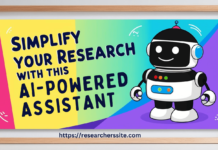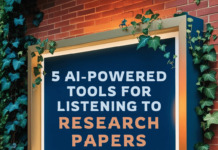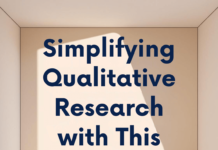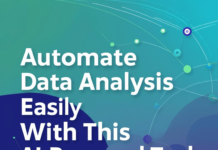Academic writing is built on a foundation of trust, accuracy, and integrity. With the rise of AI tools like ChatGPT, Grammarly, and other content-generation tools, researchers now have powerful resources to enhance their work. However, these tools come with ethical challenges. Using AI tools responsibly means ensuring academic standards are maintained, avoiding plagiarism, and being transparent about AI assistance.
In this blog post, we will explore the key ethical considerations in academic writing when using AI-powered tools. In my previous blog post on “Boost Your Academic Writing Efficiency with These Must-Have Tools” I already listed various AI tools for academic writing.
In addition to that we provide best practices for academic researchers to maintain high ethical standards.
Why Ethics Matter in Academic Writing Using AI Tools
AI tools in academic writing assists in drafting, editing, and idea generation. However, without ethical guidelines, their use could lead to academic misconduct, plagiarism, and credibility loss. As more institutions adopt AI for research support, researchers must know how to use these tools without compromising on ethical standards.
Key Ethical Considerations in Academic Writing with AI
No #1. Avoiding Plagiarism When Using AI
One of the main concerns with AI tools is plagiarism. AI can help generate content, but if researchers directly copy AI-generated text without proper citation, they risk violating academic integrity.
You should treat AI-generated text like any other source. If AI-enabled tool contributes directly to your writing, cite the tool and be transparent about its role.
No #2. Ensuring Accuracy and Fact-Checking
AI tools generate responses based on patterns in their training data, which may not always be factually accurate or up-to-date. So, If you solely on AI based tool without verification can lead to errors in your academic work.
You should cross-check any facts, statistics, or research insights generated by AI with reliable, primary sources.
- Example: If an AI tool provides a historical event date, verify this date with a trusted academic database or primary source.
No #3. Maintaining Academic Integrity
AI tools are designed to assist, not replace, the researcher’s own analytical thinking and writing. Over-relying on AI tools can diminish the originality and critical thinking expected in academic work.
AI You can take support of AI tools, like grammar checks or brainstorming, but ensure the core content, analysis, and conclusions are your own.
No #4. Transparency in AI Assistance
Transparency in using AI is crucial to academic ethics. Readers, reviewers, and institutions have a right to know when a tool has played a role in producing academic work.
You acknowledge AI contributions in the acknowledgment section or methodology of your research paper or thesis..
No #5. Respecting Privacy, Policy and Data Security
Certain AI tools require inputting text data which could pose privacy risks, especially when dealing with sensitive academic subjects.
You use secure, trusted AI tools that protect user data. Avoid entering any sensitive or unpublished data into AI tools without clear privacy policies.
As for example. before using an AI tool, review its data policy and check if it complies with your institution’s privacy guidelines.
No #6. Avoiding Excessive AI Dependence
Excessive reliance on AI tools can dilute the researcher’s originality and contribution to the work. Academic writing is valued for its originality, critical thinking, and personal insights.
Practical Steps for Ethical AI Use in Academic Writing
To practice ethical AI use in academic writing, researchers can:
- Use AI for Support, Not as a Substitute: AI can aid in drafting but should not replace your own analysis and critical thinking.
- Cite AI Contributions: Whenever AI contributes significantly you acknowledge it like any other resource.
- Cross-Check AI-Generated Content: Always verify facts from AI tools with reliable sources.
- Understand AI Limitations: Recognize the limitations and biases of AI to avoid misleading interpretations in your research.
- Respect Data Privacy: Only use secure tools that do not compromise sensitive research data.
Conclusion
Ethics in academic writing with AI tools are essential for maintaining integrity, originality, and credibility. As AI becomes increasingly integrated into research, understanding how to use these tools responsibly is crucial. By following best practices, acknowledging AI assistance, and ensuring accuracy, researchers can make the most of AI without compromising ethical standards.














